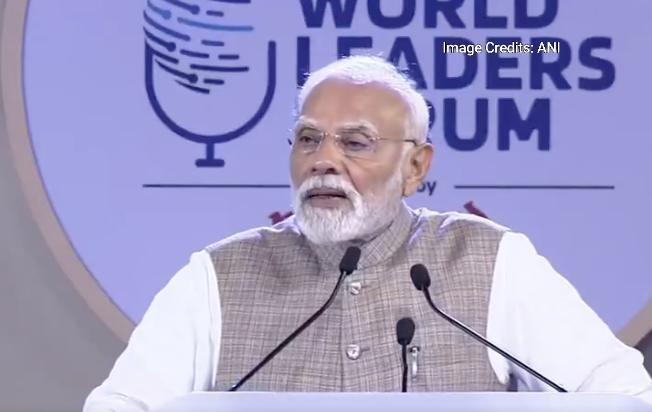
1st Made-in-India Semiconductor Chip Coming by Year-End: PM Modi
In a significant development in the field of technology, Prime Minister Narendra Modi recently announced that India’s first domestically manufactured semiconductor chip will be available in the market by the end of 2025. This news has sent shockwaves across the industry, with many experts hailing it as a major milestone for the country’s technological progress.
Speaking at a forum, PM Modi emphasized that the government is working swiftly to make India a hub for semiconductor manufacturing. He also revealed that the country is already making rapid progress towards developing a made-in-India 6G network. This announcement has generated immense excitement, as India is poised to make a significant impact on the global technology landscape.
For decades, India has been heavily reliant on imported semiconductor chips, which has led to a significant drain on the country’s foreign exchange reserves. However, with the government’s efforts to promote indigenous manufacturing, India is finally taking a step towards self-sufficiency. The domestic semiconductor chip, which is expected to hit the market by the end of 2025, marks a significant milestone in this journey.
The development of the made-in-India semiconductor chip is a result of the government’s efforts to promote Make in India, a flagship initiative aimed at increasing domestic manufacturing. The initiative has seen significant success, with many global companies setting up shop in India and creating employment opportunities for millions of Indians.
The semiconductor industry is a critical component of modern technology, and its development has far-reaching implications for various sectors, including electronics, telecommunications, and automotive. With India’s first domestically manufactured semiconductor chip, the country will be able to reduce its reliance on imports and create a more robust domestic supply chain.
The announcement has also generated excitement among industry experts, who believe that it will pave the way for India to become a major player in the global semiconductor market. “This is a game-changer for India’s semiconductor industry,” said Dr. Rohan Goyal, a leading expert in the field. “With this development, India will be able to compete with the likes of Taiwan and South Korea, which are currently the dominant players in the global semiconductor market.”
The government’s efforts to promote indigenous manufacturing have also led to significant investments in research and development. India has seen a surge in funding for startups and research institutions, which has led to the development of innovative technologies and products.
The development of the made-in-India semiconductor chip is also expected to have a positive impact on the country’s economy. The semiconductor industry is a significant contributor to India’s GDP, and the growth of the industry is expected to create new job opportunities and stimulate economic growth.
However, despite the significant progress made, there are also challenges that need to be addressed. The development of the semiconductor industry requires significant investment in infrastructure, talent, and technology. The government will need to continue to provide support to startups and research institutions to ensure that they have the resources they need to succeed.
In conclusion, PM Modi’s announcement of the first made-in-India semiconductor chip is a significant milestone for the country’s technological progress. The development of the chip marks a major shift towards self-sufficiency and is expected to have far-reaching implications for various sectors. As India continues to grow as a major player in the global semiconductor market, it is essential that the government continues to support indigenous manufacturing and provide resources to startups and research institutions.






